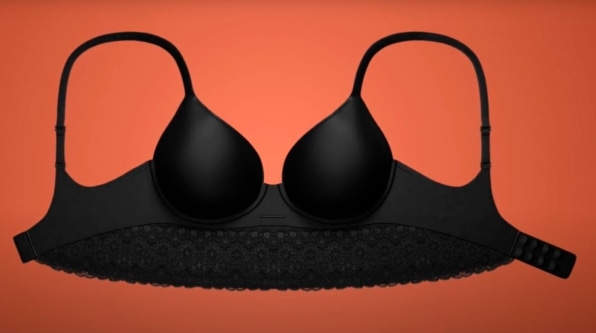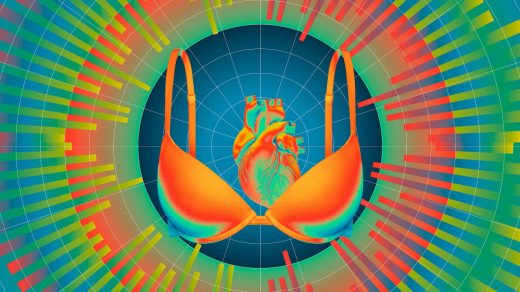This bra tracks your vital signs
By Amelia Hemphill
Alicia Chong Rodriguez was named after her grandmother—another Alicia, who dedicated her life to women’s health. As an obstetrician back in a time when women were rarely allowed to obtain medical degrees, her grandmother was a huge inspiration. She died from a heart attack when Rodriguez was just 13 years old.
“If you dig deep into your own family history you’ll probably find stories related to heart disease and stroke that we don’t talk about much,” says Chong Rodriguez on this week’s episode of Fast Company’s World Changing Ideas podcast. “And it wasn’t until I was older that I started to talk and to learn more about my grandma’s story and what happened in her healthcare.”

Cardiovascular diseases and stroke are the leading causes of death and disability for women worldwide. But because women present symptoms of heart attack differently than men, their condition is often under recognized, underdiagnosed, or undertreated.
As a graduate at MIT, Chong Rodriguez joined the university’s cardiovascular research lab. She had access to some of the biggest data sets in the world for clinical decision-making, and was shocked to realize that women were not included in clinical trials until 1993. “And that even to this day, only one in every four clinical trial participants are female. So most of these databases were missing women’s data,” she says. “It’s really frustrating, especially when you realize that everyone’s working on machine learning and artificial intelligence algorithms using this existing data—and the data is missing women.”
It’s part of a phenomenon known as the gender health gap: Women experience dramatic health inequalities because healthcare systems have been mostly designed by men, for men, using data from men. Women are more often misdiagnosed. Conditions that specifically affect them are underfunded and under researched, and while women may statistically live longer than men, a much larger percentage of their lives are lived in ill-health. Chong Rodriguez wanted to do something about it.

Along with two female cofounders, she set up Bloomer Tech, a startup dedicated to transforming women’s underwear into a healthcare device. Their first product was the Smart Bra. It looks like a regular bra, but washable, flexible sensors are embedded in the fabric to track the user’s vital signs like electrocardiograms, pulse rates, and heart rhythms. The data is sent to a phone app, which can provide tools to improve heart health or alert doctors, if necessary.

“So our big goal is to generate digital biomarkers,” says Chong Rodriguez. Traditional biomarkers, like blood, show a snapshot in time, but the smart bra could offer something more dynamic. “Digital biomarkers work more like a video,” Chong Rodriguez explains, “so it will definitely allow a more personalized care from the physician to their patient.”
Wearable medical devices have historically underperformed on women, due to the challenges of female physiology or impractical, bulky designs. “We already have something that women wear every day that helps us accommodate to different body shapes and sizes, which is the bra,” says Chong Rodriguez. “So for us, it was like, ‘Wow, there’s a huge opportunity because we believe in a future where the new technologies and digital health tools include all of us—not just some people.’”
Amelia Hemphill is the host of Fast Company’s World Changing Ideas podcast. Subscribe for new episodes every Wednesday.
Want to hear about more futuristic inventions that people around the world are creating to solve the climate crisis? You can listen and subscribe to our World Changing Ideas podcast on Apple Podcasts, Google Podcasts, Stitcher, Spotify, or wherever you get your podcasts.
(12)



